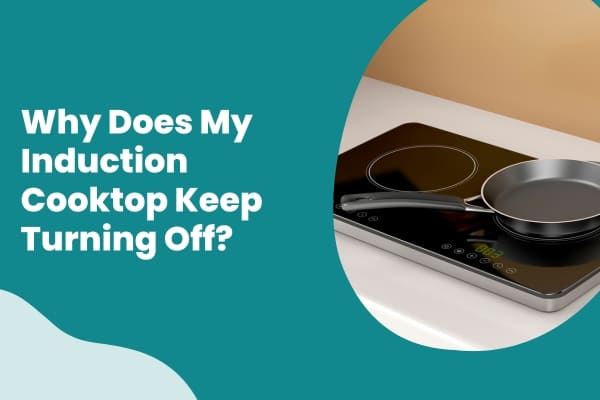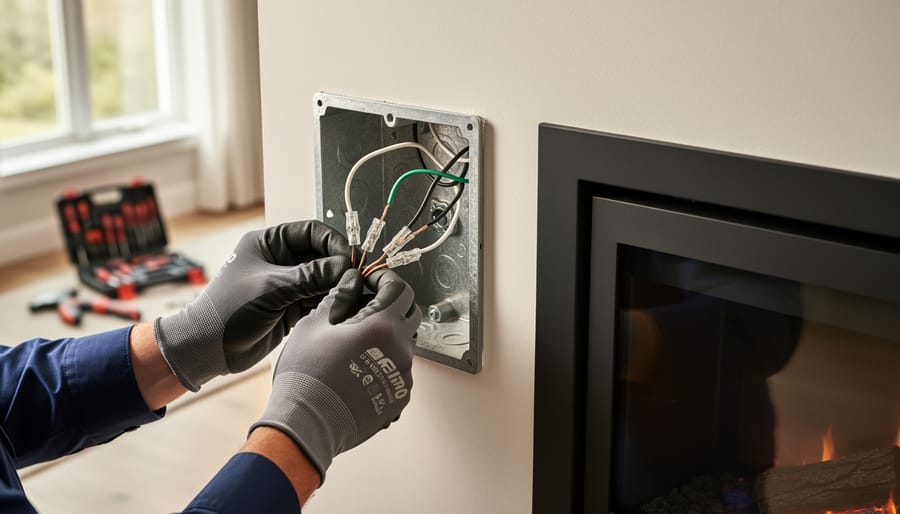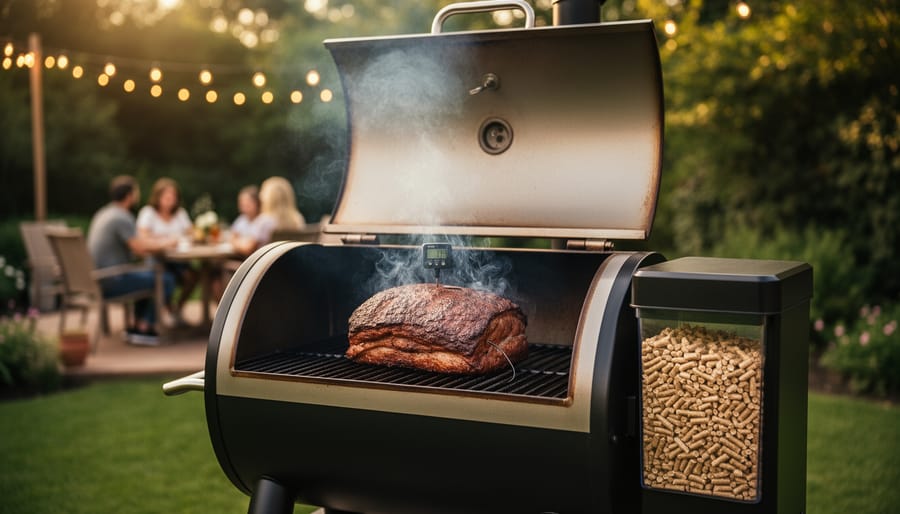Do you have an induction cooktop that keeps turning off? You’re not alone! Many people have this problem. But don’t worry – there are a few possible reasons why it’s happening and ways to fix it.
In this article, you’ll learn why your induction cooktop may be shutting off and how to get it back up and running. Let’s get started so you can return to cooking with your induction cooktop!
Reasons Why Induction Cooktops Turn Off Automatically
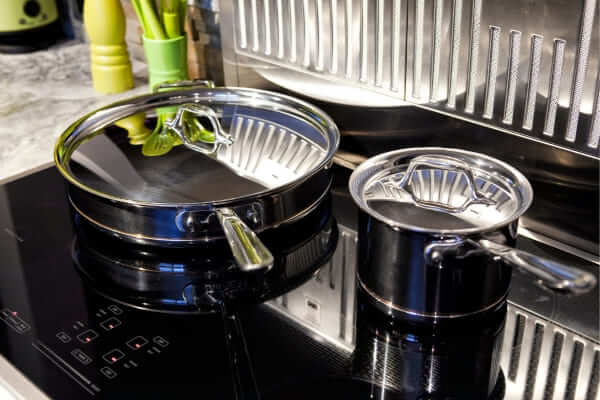
Maximum Cooking Limit
If your induction cooktop keeps turning off, it may be because it has reached its maximum cooking limit. This limit is built-in to prevent the cooktop from overheating and causing a fire. Induction cooktops have sensors that detect and monitor the temperature. The cooktop will automatically shut off if the temperature exceeds the maximum limit.
- The induction cooktop uses sensors to detect overheating.
- The cooktop shuts off When the temperature exceeds the maximum limit.
- This built-in safety feature helps to prevent fires.
- The cooktop will remain off until it has cooled down.
Understanding the maximum cooking limit ensures that your induction cooktop is used safely and efficiently. If you’re still having problems, it’s best to contact a professional for help.
No Cookware or Improperly Placed Cookware
You need to ensure that your cookware is placed correctly on the cooktop. Otherwise, it won’t detect it and will shut off.
Induction cooktops require the use of iron cookware only, and if the material of the cookware is not compatible, it won’t work properly and will cause the cooktop to shut off.
Additionally, the cookware needs to be in direct contact with the cooking surface so the cooktop can operate properly, and the cooktop surface temperature should not be exceeded.
To prevent the cooktop from turning off, ensure your cookware is compatible with the cooktop, correctly placed, and the temperature is not exceeded.
Automatic Cutoff Feature
The automatic cutoff feature helps keep your cooktop from shutting down unexpectedly. It is one of the many safety features of your induction cooktop. This feature is triggered by a heating wire built into the cooktop. After a certain amount of time without any activity, the cooktop will automatically turn off, preventing accidents and saving energy.
Here are three benefits of the automatic cutoff feature:
- Safety: Protects you from potential dangers and keeps your kitchen safe.
- Efficiency: Helps save energy by shutting off when not in use.
- Convenience: Gives you the freedom to do other things while still having the safety of your cooktop.
Also, Read: Do Ovens Turn Off Automatically?
Hot or Warm Objects Coming in Contact with Digital Controls
Be careful not to let hot or warm objects come in contact with the digital controls of your cooktop, as this could cause it to shut down. This safety feature protects you from accidental burns and malfunctions of the cooktop.
For example, GE Profile and Bosch induction cooktops have this feature to help avoid these accidents. The cooktop will automatically shut off if the digital controls sense any heat from a hot or warm object. This helps protect the cooktop from potential damage.
To prevent this from happening, always make sure to keep any hot or warm objects away from the digital controls. This will help keep your induction cooktop functioning properly and safely.
Incompatible Cookware
If you use cookware that is incompatible with your cooktop, it may not work properly and could cause the cooktop to shut down.
This means that if you use cookware that is too large or too small for the cooktop, it may not be able to properly detect the temperature of the cookware and cause the cooktop to shut down.
Additionally, induction cooktops require the use of iron cookware, so if the cookware is not made of iron, it won’t be compatible and could cause a shutdown.
To ensure that your cooktop is working correctly, make sure that you only use iron cookware that is the correct size for your cooktop.
How to Fix an Induction Cooktop That Keeps Turning Off
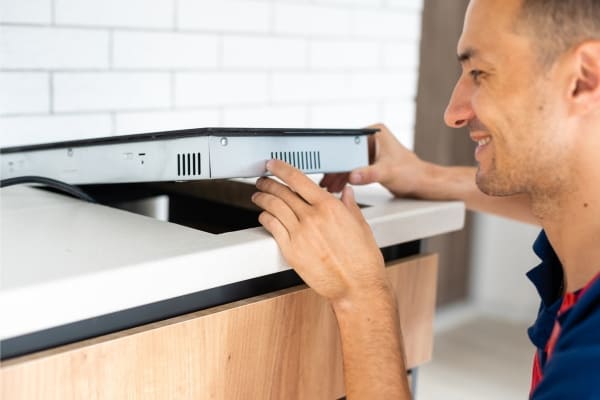
If your induction cooktop keeps turning off, there are a few simple steps you can take to try and fix it.
Step. 1. Check Cookware Placement
Check that your cookware is placed properly on the heating element. It should be centered and not too small or too large. This is important when using an induction cooktop, as it won’t be able to detect the cookware if it’s not correctly placed.
Make sure the cookware is the right size for the element and centered on it. If not, the cooktop will shut off automatically.
So take a few moments to ensure your cookware is properly placed. That way, you can enjoy using an induction cooktop without any problems.
Step. 2. Use Compatible Cookware
Now that you’ve checked the placement of your cookware, it’s time to make sure it’s compatible with your induction cooktop.
Your cookware must be made of iron or have a magnetic base to work properly. To test this, attach a magnet to the bottom of the cookware.
Here are a few tips to keep in mind:
- Make sure the magnet sticks to the bottom of the cookware.
- If it does, your cookware should be compatible with your induction cooktop.
- If the magnet doesn’t stick, it’s incompatible and should not be used.
Step. 3. Clean the Cooktop
To maintain your cooktop, regularly clean it with a non-abrasive cleaner. This will prevent any build-up that can interfere with the cooktop’s sensors and cause it to shut off.
To clean:
- Start by wiping down the surface with a damp cloth.
- Use a non-abrasive cleaner and a soft sponge or cloth to clean the surface.
- Avoid using harsh abrasives or scrubbing too hard to avoid scratching the surface.
Rinse the surface with a damp cloth and then dry with a soft cloth. This will keep your cooktop in good working order and help it to last longer.
Step. 4. Check for Hot or Warm Objects on The Digital Controls
Examine the digital controls for any hot or warm objects obstructing them. Ensure the digital controls are not obstructed and free from any hot or warm objects.
- Feel the temperature of the digital controls.
- Ensure that any objects nearby are at a safe distance.
- Look for objects that may have fallen on the cooktop.
- Check for any steam or heat coming from the cooktop.
If any hot or warm objects come in contact with the digital controls, the cooktop may shut off. To avoid this, ensure that the digital controls are clear of any objects and that all objects near the cooktop are at a safe temperature.
Step. 5. Reset the Cooktop
If nothing else has worked, try resetting the cooktop.
Turn off the cooktop and unplug it from the power source for a few minutes. Then plug it back in and turn it on again.
You may be surprised to find the problem has been resolved. If not, contact a professional for assistance.
Resetting the cooktop can be a simple way to fix certain issues. It’s easy to do and could save you time and money in the long run.
So, if you’re having trouble with your induction cooktop, try resetting it.
Also, Check: Do Gas Stoves Turn Off Automatically?
Conclusion
Don’t worry; if your induction cooktop keeps turning off, it’s likely an easy fix. Try checking the power source, the safety features, or the timer.
If any of those aren’t working properly, it could be causing your induction cooktop to turn off. With a few simple steps, you can return to cooking in no time.

